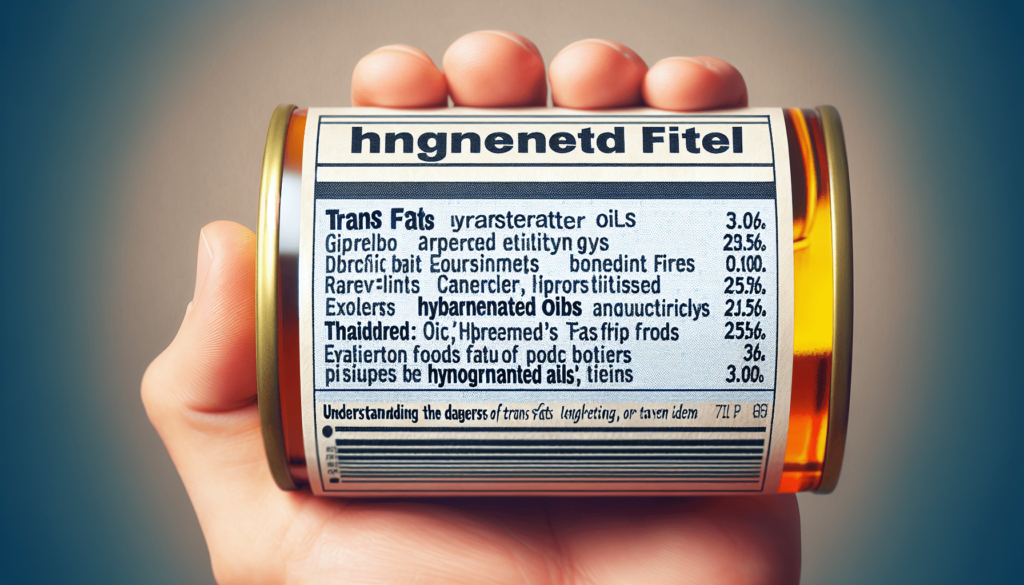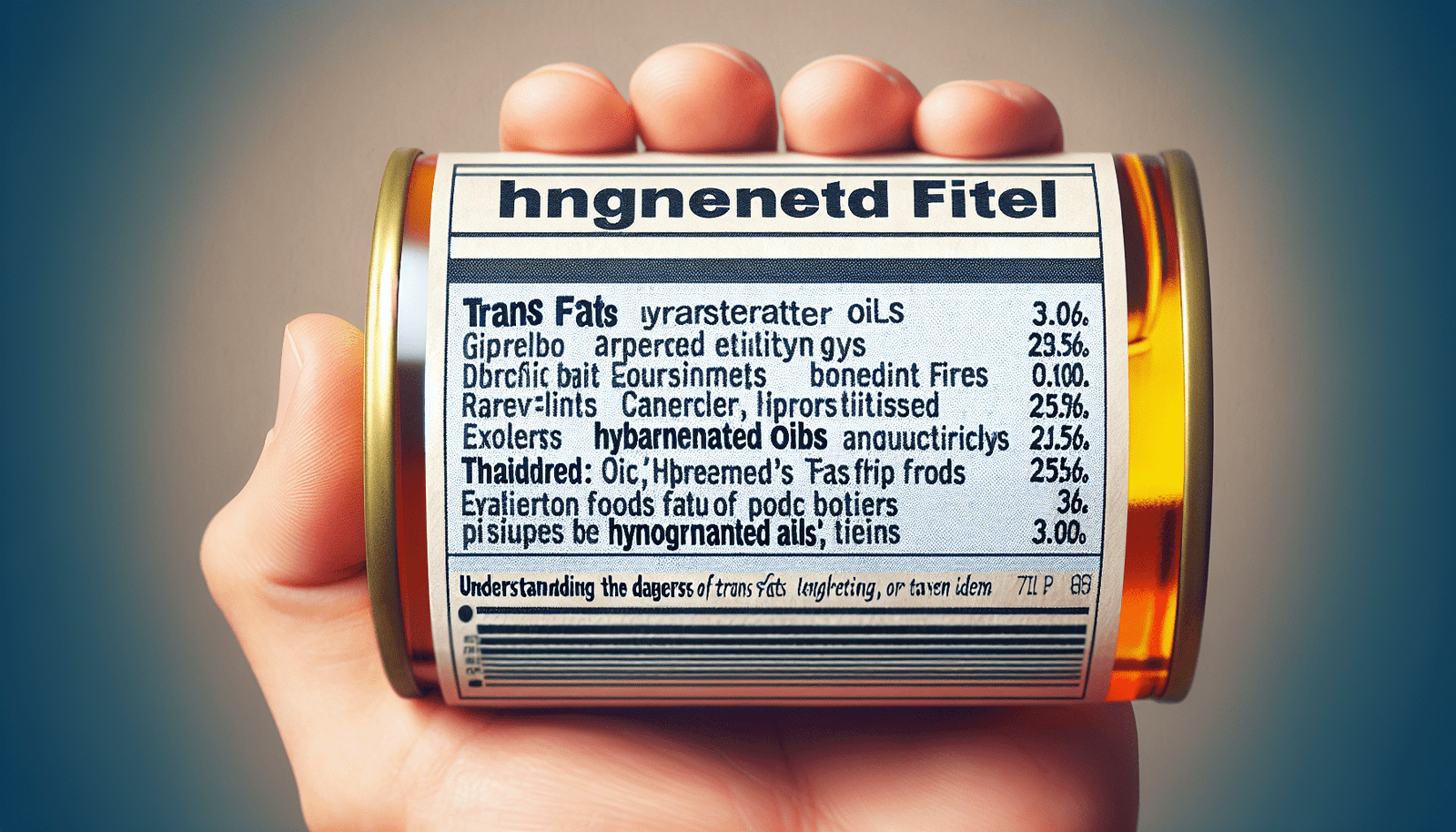Are You Consuming Trans Fats Without Knowing It?
Have you ever stopped to think about what is actually in the foods you consume on a daily basis? Trans fats are something that many people are not even aware of, yet they can be found in numerous processed foods. Let’s take a closer look at what exactly trans fats are and why they can be harmful to your health.
What Are Trans Fats?
Trans fats are a type of unsaturated fat that can be found in small amounts in certain foods, but most of the trans fats people consume are artificially created through a process called hydrogenation. This process involves adding hydrogen to liquid vegetable oils to make them more solid, resulting in the creation of trans fats.
Where Are Trans Fats Found?
Trans fats can be found in a wide range of processed foods, including baked goods, fried foods, and many types of margarine. They are often used in these foods because they help to improve texture, flavor, and shelf life. In addition to being found in processed foods, trans fats can also be found in some animal products, although in much smaller amounts.
The Health Risks Associated With Trans Fats
Consuming high amounts of trans fats can have serious negative effects on your health. It is important to understand the risks associated with trans fats so that you can make informed choices about the foods you eat.
Increased Risk of Heart Disease
One of the biggest risks associated with trans fats is an increased risk of heart disease. Trans fats have been shown to increase levels of LDL cholesterol (also known as “bad” cholesterol) while decreasing levels of HDL cholesterol (or “good” cholesterol). This can lead to an increased risk of developing heart disease, as high LDL cholesterol levels are a major risk factor for heart disease.
Increased Risk of Stroke
In addition to an increased risk of heart disease, consuming trans fats has also been linked to an increased risk of stroke. Trans fats can contribute to the build-up of plaque in the arteries, which can restrict blood flow to the brain and increase the risk of a stroke.
Inflammation and Chronic Diseases
Trans fats have also been linked to inflammation in the body, which can contribute to the development of chronic diseases such as diabetes, obesity, and certain types of cancer. Chronic inflammation can damage cells and tissues in the body, leading to a wide range of health problems.
How to Identify Trans Fats in Foods
It can be challenging to identify trans fats in foods, as they are not always clearly labeled on packaging. However, there are a few key things to look out for when checking food labels for trans fats.
Check the Ingredient List
One of the best ways to identify trans fats in foods is to check the ingredient list on the packaging. Look for the terms “partially hydrogenated oils” or “hydrogenated oils” in the list of ingredients. These are indicators that the food contains trans fats, even if the nutritional label states that there are 0 grams of trans fats.
Be Wary of Processed Foods
As mentioned earlier, trans fats are often found in processed foods. Be cautious when consuming foods such as baked goods, fried foods, and packaged snacks, as these are common sources of trans fats.
Look for Alternatives
When shopping for groceries, try to choose foods that are trans fat-free whenever possible. Look for products that are labeled as “trans fat-free” or “zero trans fats” to ensure that you are not unknowingly consuming trans fats.

Making Healthier Choices
Now that you know more about trans fats and the risks associated with consuming them, it’s time to make healthier choices when it comes to your diet. Here are some tips to help you reduce your intake of trans fats and improve your overall health.
Cook at Home
One of the best ways to avoid trans fats is to cook at home using whole, unprocessed ingredients. This allows you to have more control over the fats and oils you use in your cooking, reducing the likelihood of consuming trans fats.
Choose Healthy Fats
Instead of relying on trans fats for flavor and texture, opt for healthier fats such as olive oil, avocado oil, and coconut oil. These fats are rich in monounsaturated and polyunsaturated fats, which are beneficial for heart health.
Read Food Labels
Get into the habit of reading food labels before purchasing any packaged foods. Look for products that are free of trans fats and low in saturated fats to make healthier choices for you and your family.
Conclusion
In conclusion, trans fats are a type of fat that can have serious negative effects on your health if consumed in high amounts. By understanding the dangers of trans fats and taking steps to reduce your intake, you can improve your overall health and reduce your risk of developing heart disease, stroke, and other chronic diseases. Make informed choices about the foods you eat and prioritize your health by choosing foods that are free of trans fats. Your body will thank you for it in the long run.


